Sacred Headwaters of the Amazon
Kosmos | When you talk of Awakening the Dreamer, what does our collective ‘dream’ say about our modern habits and addictions? And what are the historic seeds of our delusion?
Bill Twist | There are several answers to that question. Ego, separation, a dream of individualism. We see ourselves as separate players, independent players in life. That’s a fantasy we have created and been born into and live in. Through our work at Pachamama Alliance, we have had the privilege of working with indigenous people in the Amazon. And they don’t see the world as made up of separate, independent players. It’s confusing for us at times, seeing how they make decisions and how they work. It challenges our own understanding of the world.
However, when you have a chance to go deeper with the indigenous people we work with, you get their sense of the connection of all life, of all beings—beings that are in the rocks, the rivers, the trees, and all around. And I think that’s what modern humanity is beginning to understand. There have always been a few people—visionaries or mystics—who have known that, but it’s becoming more general knowledge now. That’s what the work of Awakening the Dreamer (an educational program at Pachamama Alliance that explores challenges and opportunities currently facing humanity) has been. It’s awaking people from a trance of individualism and separateness, to seeing that we’re actually all deeply connected and integrally a part of some great process, some great guiding wisdom.
Belén Páez | The ‘dream’ is a complete disconnection from nature, and it’s sad in a country like Ecuador with important biodiversity in many different areas: the highlands, the coasts, the Amazon region. For 40 years, delusion led us to base all our economic solutions on oil extraction without taking into account the pollution and the destruction, not just of the ecosystems, but also humans—indigenous peoples. We have already lost several indigenous tribes that used to live in the forest.
So we have become more and more detached from our biodiversity and from the wisdom heritage of our indigenous peoples.
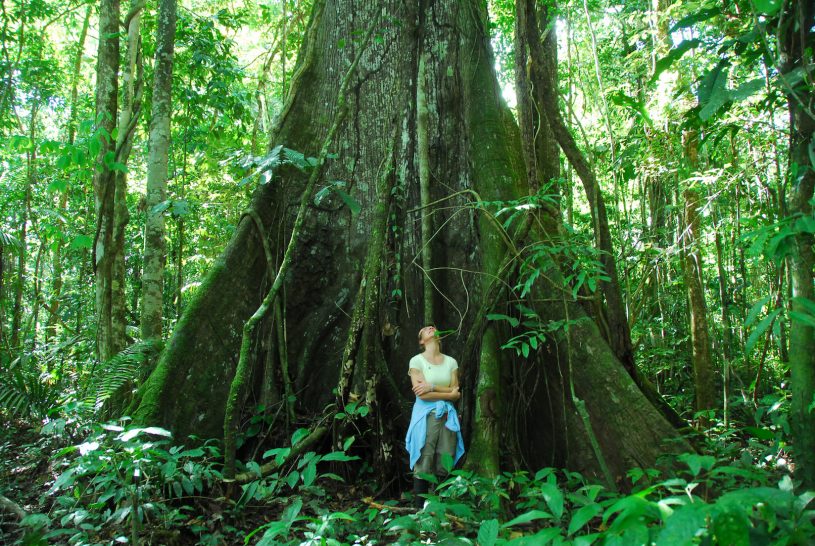
Kosmos | I think it was about 10 years ago that Ecuador was the first to pass a Rights of Nature policy?
Bill Twist | It’s built into the constitution of the country, the only country on earth that has that. Other countries have adopted laws pertaining to Rights of Nature, but have not formally added it to their constitution.
Kosmos | So, has that been a tool that’s been helpful?
Bill Twist | That was a bold and innovative move by the country of Ecuador to build into their constitution, into the governing structure for the whole country, that nature has an inherent right to exist and flourish. It was monumental that it went in, but slow in its implementation. One of the very first places where that constitutional provision got tested was with a proposed huge mining project. It was probably the wrong place to first test it because the government saw it as a threat to its national development plans. Although the mining project would obviously be a violation of nature’s rights, the government basically chose to set aside that provision of the constitution as not, in that case, being in the national interest.
But there’s a huge amount of work that has been done now over the last eight or nine years in Ecuador to build Rights of Nature cases from the ground up, and start building a structure of jurisprudence. Every time there’s a chance to bring a case on behalf of nature, it shifts consciousness. There’s been steady progress in Ecuador around the issue of Rights of Nature. There are many more lawyers now who understand how to bring cases; and people in their communities understand that it is possible be an advocate for nature. It hasn’t stopped oil development or mining, but I think it will be a significant policy tool for the future.
Belén Páez | During the last 10 years, we have had more than 17 Rights of Nature cases in Ecuador regarding ecosystems close to the sea, to some rivers and mountains, and even endangered species. The courts ruled in favor in only three of these cases, meaning that we are still facing a lot of judges and people in the courts who don’t understand very clearly yet what Rights of Nature are.
So, as Bill was saying, there is a path and we have a tool that we are promoting to engage more and more people at the national and regional levels. Ecuador is leading the region, and the whole Amazon Basin, in this regard. This is acknowledged by the United Nations and the international community, and there are now hundreds of members under the Global Alliance for the Rights of Nature. It is becoming a powerful community of citizens engaged in ethical tribunals to defend the rights of Mother Earth everywhere.
Kosmos | How aware are the indigenous people of Ecuador and Peru of the loss of species worldwide?
Bill Twist | The area where we work, which has been called The Sacred Headwaters of the Amazon, is the most biodiverse area of the Amazon Basin. It’s still very resilient—there has been minimal human encroachment—but the indigenous people are aware of what’s going on in other parts of the world. And they know that if industrial-level extractivism moves into their territory, they will face species extinction and degradation of their territory’s natural ability to support life just as has happened in so many parts of the world. They are fiercely committed that that doesn’t happen in the area of the Sacred Headwaters.
Belén Páez | I think that it is clear we are facing the Sixth Mass Extinction on Earth, and that’s affecting every ecosystem on the planet. There are deep studies in Ecuador about how biodiversity is threatened in the Galapagos, in the Andes region, and in the Amazon. There is a critical relationship between the Andes and the Amazon. Certain fish are not migrating anymore, vegetables and plants are changing. Many indigenous people are letting us know that things are changing in the forest.
For example: One friend has been taking pictures every month of caterpillars in different stages and he has been able to show that the larvae are not becoming butterflies at the end. The Achuar people say that even our thoughts and our brains are facing these changes, and that it is very important to protect the sacred places that remain on Earth—these places of ‘nature intelligence’ that could be expanded to the next generations if we are able to protect them.
Kosmos | Different tribal peoples likely have different ideas about what to do next. Is there some consensus about what needs to be done and what direction to move in?
Bill Twist | For years, the various indigenous nationalities of this region, in addition to defending their territory, have been developing a vision for the future of their territory. This work has pretty much been done independently by the various groups.
We are now supporting all of the indigenous nations to come together to forge a common vision for their area, the Amazon Sacred Headwaters—nearly 60 million acres and 18 nationalities. The task they are working on is to build a common “life plan”—an indigenous inspired development plan—for this region. They all know that each of them working individually is not going to be anywhere near as powerful, or as effective, or as important for the world, as all of them coming together and working on behalf of a common vision.
What is particularly inspiring about this initiative is that the indigenous groups, although clearly working to protect their territories, also see that this project is for the world and that it is setting a conservation example for the world.
Belén Páez | And this is different from what was happening 10 years ago or even five years ago. The governments were still able to divide the organizations through money, through false promises about what is ‘good development,’ and offers of housing or relief. All these political promises have a way of dividing the wisdom.
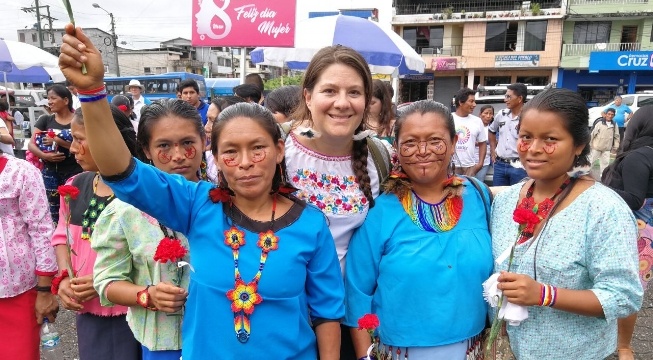 But nowadays, through the Sacred Headwaters Initiatives, there is a clear result—different indigenous nations and nationalities between Ecuador and Peru have been coming together. First, they tell the country and the region that the Amazon is one of the most important forests and ecosystems for the world; second, they really are visionaries, ancestral people with a lot of wisdom, telling humanity what to do to confront climate change; and third, they are resisting. I mean they are resisting to protect life, to protect their territories, to protect their collective rights. They have shown during the last year—and they will be showing us during the next years or decades—that they are going to give their lives and not allow any oil and mining and monoculture industry inside of their sacred lands and territories. Because they truly believe that at this moment of life, they need to give their own lives to protect this part of the planet for the future generations.
But nowadays, through the Sacred Headwaters Initiatives, there is a clear result—different indigenous nations and nationalities between Ecuador and Peru have been coming together. First, they tell the country and the region that the Amazon is one of the most important forests and ecosystems for the world; second, they really are visionaries, ancestral people with a lot of wisdom, telling humanity what to do to confront climate change; and third, they are resisting. I mean they are resisting to protect life, to protect their territories, to protect their collective rights. They have shown during the last year—and they will be showing us during the next years or decades—that they are going to give their lives and not allow any oil and mining and monoculture industry inside of their sacred lands and territories. Because they truly believe that at this moment of life, they need to give their own lives to protect this part of the planet for the future generations.
Kosmos | I’d like to shift now a little bit from talking about outward things to experiences of inner transformation—beginning with your own. What has transformed in you, doing this work?
Bill Twist | Getting a sense of connection to the Earth and being a part of the web of nature. That’s an understanding that is available to people anywhere, but it’s particularly dense in the communications that are going on in the Amazon forest—there’s so much life and so much information being exchanged. Being in the middle of that, you do get a sense that you’re embedded inside something that’s aware, that responds. It’s not like nature’s out there and you’re here. You’re in the middle of it, you’re part of it. Experiencing that is a great gift.
Belén Páez | During the last Ice Age, the Amazon region was not covered by ice. What happened in the Amazon is that a lot of intelligence of life itself—plants and animals—was able to maintain its evolution. Every time that I have been in the Amazon, I could feel that. I felt in my body, in my mind, the truth of that. Everything happening, maybe thousands of years ago, is still coming through the earth and the air that I was breathing. I found that I was connected with not just the surrounding time, but with all times.
Kosmos | Wonderful. How beautiful to be connected to that prana, the living energy of the planet. And when you bring people on these journeys to the Amazon, this is the transformational experience they have too?
Bill Twist | It’s almost universal that the people who come to the Amazon and spend a week in the forest with indigenous people—participate with them in their daily life, doing ceremonies, hiking through the forest—are fundamentally altered by it. You almost can’t help it. I think it’s something you don’t forget, like riding a bike. You can activate it again by going out into nature almost anywhere. But trips to the Amazon make a huge difference.
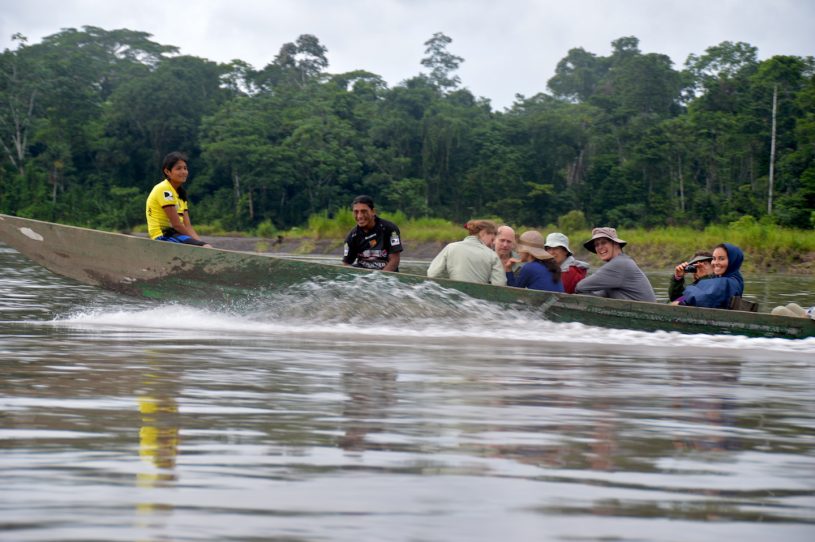
Kosmos | And do you feel people can still live in a state of pure connection to the Earth? Or do you feel that we’re losing it by the very fact that we’re encroaching upon it?
Bill Twist | It clearly still exists. There are people in the headwaters region who still live voluntarily in isolation from the outside world. And, at the same time, in many of the communities where we work, civilization is much closer. People can leave and go to the town to try to earn money. And, of course, there are examples of people losing their connection to the culture. But still, in all the communities, there’s this deep, deep sense of connection to the natural world.
Just a quick story: I was in the rainforest just recently with a group of visitors. They were going to do a ceremony in a community that night and they had prepared well. They’d fasted, visited a sacred waterfall, done a tobacco ceremony, sat in silence in the forest and meditated, and were back in the community sitting in the dark in preparation to meet with the shaman. About this time, a jaguar was spotted on the periphery of the area where the ceremony would take place. It was almost casually observing and it was astounding how close it was to so much activity. For the Achuar, it all made sense. The jaguar is a powerful carrier of Arutam, the highest and most potent spirit of the forest. The jaguar had sensed the energy generated by the extensive and pure preparations for the ceremony. In right reciprocity, it brought its power to the participants.
Belén Páez | What I see is that they are still really connected with the spiritual world for healing purposes and to understand what is going on in their lives, to hear the advice of their family or their community. Youth are coming back to listen to their grandparents or to their parents, and in order to interpret their dreams. They are really into dreams and spiritual life.
Kosmos | Yes the spirit world must feel very close there. I haven’t been, but a friend of mine, who accompanied you, came back transformed. He had never experienced the ‘spirit world’ directly before. And I’m wondering … this is a mystical kind of a question, but do you feel that the spirit world is working to help guide us through this very difficult time humanity is facing? Do you feel the spirits are with us, or in fact, that they are us?
Bill Twist | I think there’s something that is guiding us; there’s something that’s reacting, that is trying to wake us up. There’s something that’s responding to the assault that’s been going on against our living Earth.
My sense is that Mother Earth, Pachamama, is trying to figure it out and is getting more skillful at reaching out—and thankfully we’re starting to do a better job of listening—to get us humans off our butts and into action to honor and protect her. It is a kind of immune system that’s activating, and we’re a part of it. The human species is a critical, important part of shaping and being responsible for the immune response that is being called for.
Kosmos | Do human beings have a purpose on Earth?
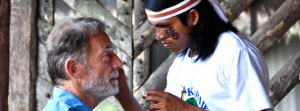 Bill Twist | Yes, I think we are here for something. We have amazing powers. Because of our toolmaking ability and our ability to coordinate and collaborate, we’ve left scars and damage and destruction on the Earth, yet those same powers are now so strong that they can be used to steer the process of evolution on Earth. ‘Steer it toward what?’ is a great question to live in.
Bill Twist | Yes, I think we are here for something. We have amazing powers. Because of our toolmaking ability and our ability to coordinate and collaborate, we’ve left scars and damage and destruction on the Earth, yet those same powers are now so strong that they can be used to steer the process of evolution on Earth. ‘Steer it toward what?’ is a great question to live in.
Belén Páez | At the beginning of the Earth, a great spinning of matter was required for fusion to occur. This great spinning is the power behind creation and all the cycles on Earth, all this circle of Life going around and around. We already have many answers to solve the problems that we are confronted with now, and we will be able to do something creatively that will allow us to stay longer on this beautiful planet. We are not just something separate in the Universe. We are part of this huge turning creativity, which is Life within us. That’s why we are given opportunities to keep going.
Kosmos | Wonderful. Thank you both so much.


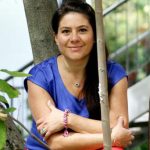
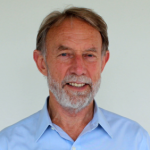
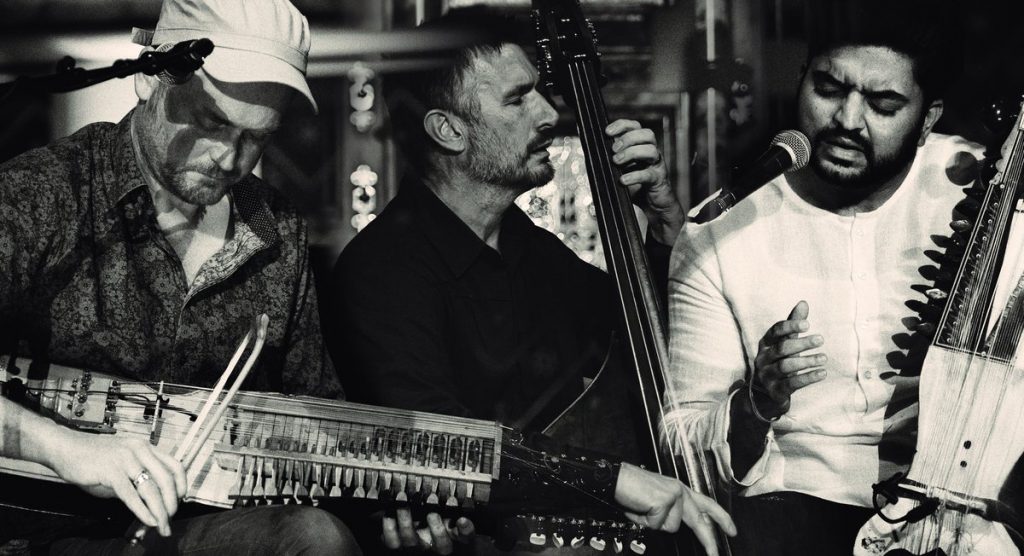
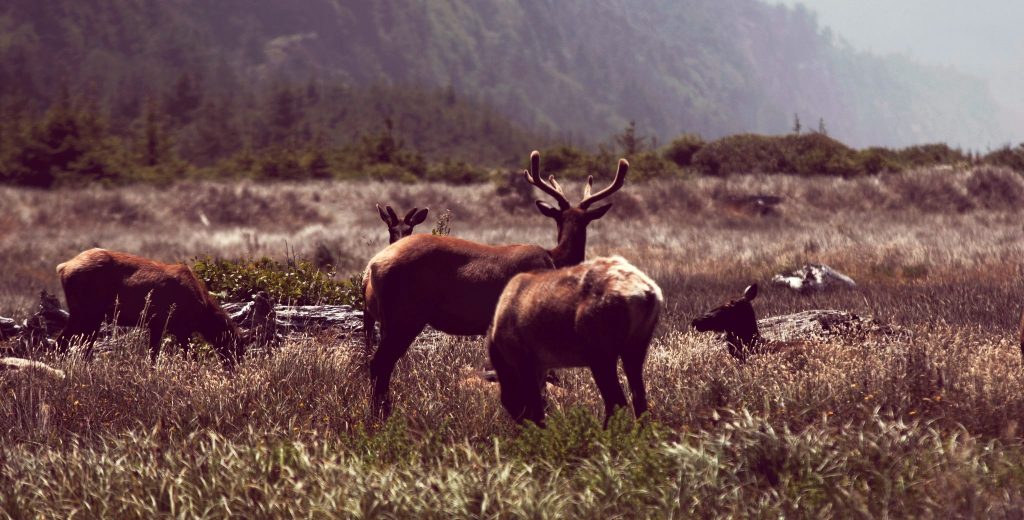
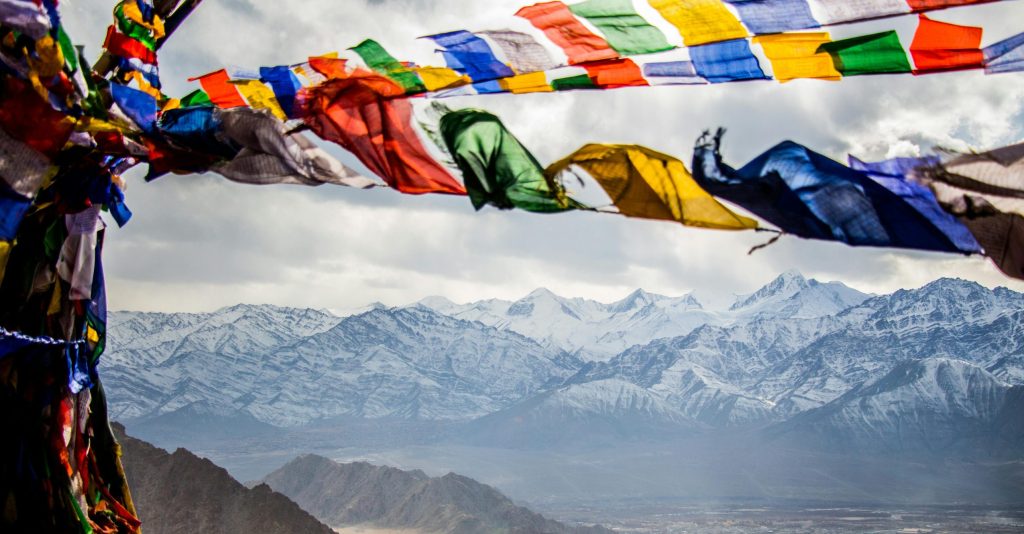
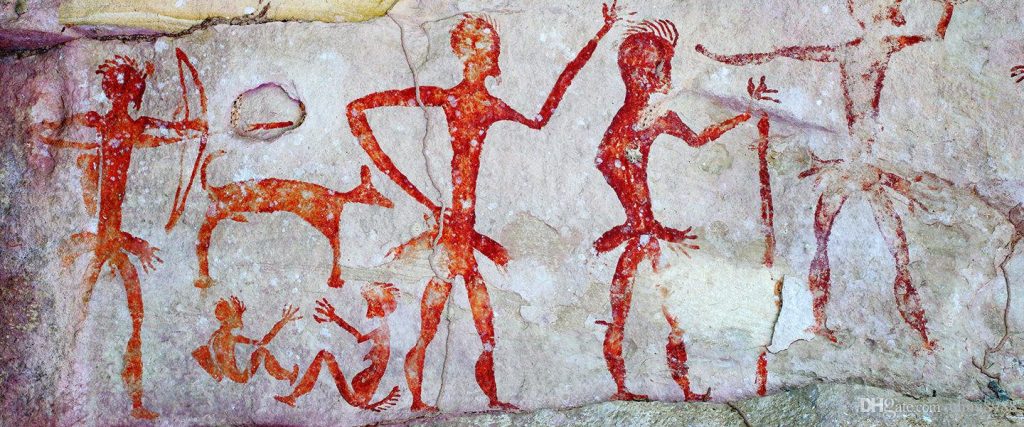
Such an inspiring article. Loving Earth as ourselves is emerging in our Western culture – slowly, but surely.
Thank you for asking the right questions, Rhonda.